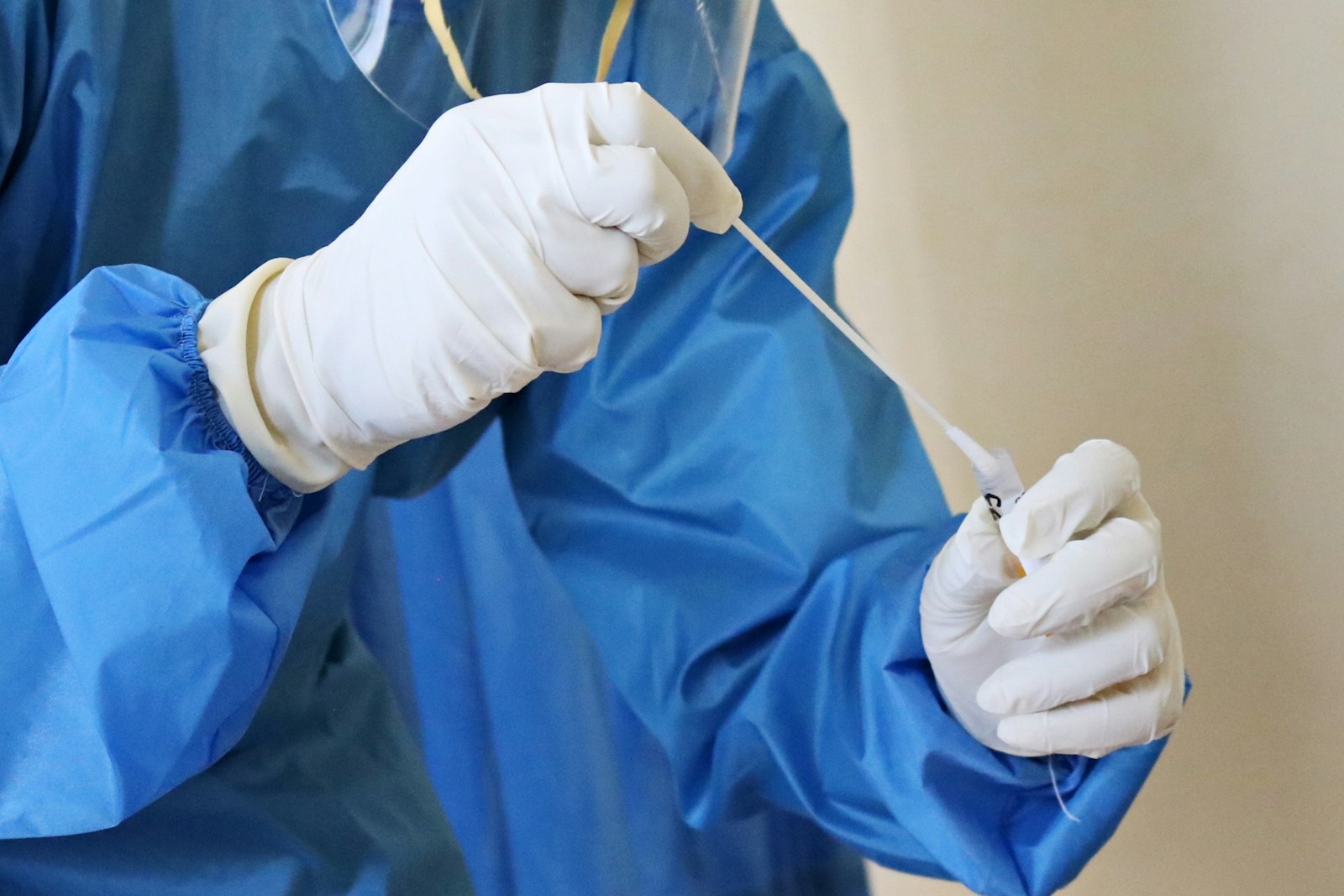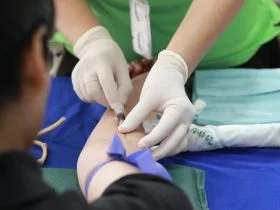Reader's Roadmap
Key Takeaways:
- Long COVID refers to the persistence of COVID-19 symptoms beyond the acute phase of the illness.
- Long COVID symptoms can affect various systems in the body and can include fatigue, brain fog, shortness of breath, chest pain, muscle weakness, joint pain, and sleep disorders.
- Factors that contribute to the development of Long COVID include the severity of the initial infection, pre-existing health conditions, age, and gender.
- Long COVID can have a profound impact on physical and mental health, making it challenging to return to work or daily activities and straining relationships and social life.
- Managing Long COVID symptoms requires a multi-disciplinary approach, including rehabilitation, alternative therapies, and the use of innovative technologies.
- A comprehensive care plan involving a multidisciplinary team is essential for recovery, and mental health support is crucial.
- Joining support groups and engaging with online communities can provide valuable support and advocacy for Long COVID patients.
Understanding Long COVID
Long COVID, also known as post-acute sequelae of SARS-CoV-2 infection (PASC), refers to the persistence of COVID-19 symptoms beyond the acute phase of the illness. Unlike acute COVID-19, which typically lasts for two to three weeks, Long COVID symptoms can persist for months, affecting various systems in the body.
What is Long COVID and how does it differ from acute COVID-19?
Long COVID is characterized by a range of persistent symptoms that can affect multiple organ systems even after the initial infection has resolved. These symptoms can include fatigue, brain fog, shortness of breath, chest pain, muscle weakness, joint pain, and sleep disorders. In contrast, acute COVID-19 primarily affects the respiratory system and can lead to severe respiratory distress.
While the exact mechanisms behind Long COVID are still being studied, it is believed to be related to a combination of viral persistence, dysregulated immune responses, and potential organ damage caused by the initial infection.
The range of symptoms experienced in Long COVID
Long COVID can present with a wide range of symptoms that vary from person to person. In addition to the common symptoms mentioned earlier, individuals with Long COVID may also experience neurological symptoms such as headaches, dizziness, and concentration and memory issues. Gastrointestinal symptoms like nausea, diarrhea, and loss of appetite have also been reported.
Furthermore, Long COVID can have a significant impact on the cardiovascular system, leading to palpitations, heart rhythm abnormalities, and chest pain. Psychological symptoms, including anxiety, depression, and post-traumatic stress disorder (PTSD), are also common among Long COVID patients.
Factors that contribute to the development of Long COVID
While anyone can develop Long COVID, certain factors may increase the risk of experiencing prolonged symptoms. These factors include the severity of the initial COVID-19 infection, pre-existing health conditions (such as obesity, diabetes, and respiratory illnesses), age (older adults are more susceptible), and gender (women seem to be more affected than men).
Research also suggests that individuals who experience a higher viral load during the acute infection phase may be more likely to develop Long COVID. Additionally, certain genetic factors and immune system dysregulation may play a role in the persistence of symptoms.
The Impact of Long COVID on Patients’ Lives
The long-lasting symptoms of Long COVID can have a profound impact on the lives of affected individuals. Both physical and mental health can be significantly affected, leading to a decreased quality of life and functional impairment.
Struggles with physical and mental health
Physical health challenges in Long COVID patients can be debilitating. Fatigue and exertional intolerance can make even simple tasks exhausting and overwhelming. Muscle weakness and joint pain can further limit mobility, making it difficult to perform daily activities or engage in exercise.
Mental health challenges are also prevalent among individuals with Long COVID. The constant struggle with symptoms, uncertainty about recovery, and the impact on daily life can lead to feelings of anxiety, depression, and frustration. The psychological toll of Long COVID should not be underestimated, and comprehensive support is crucial for the overall well-being of patients.
Challenges in returning to work or daily activities
Long COVID symptoms can disrupt a person’s ability to return to work or resume regular daily activities. The persistent fatigue and cognitive impairments can make it challenging to concentrate, resulting in decreased productivity. Physical limitations may also impact a person’s ability to perform physically demanding tasks.
Furthermore, some individuals may experience stigma, skepticism, or lack of understanding from employers, colleagues, or friends, exacerbating the challenges faced when trying to reintegrate into work and daily routines.
The toll of Long COVID on relationships and social life
Long COVID can strain relationships and social interactions. The unpredictability and fluctuating nature of symptoms can make it difficult for individuals to commit to social plans or maintain regular contact with friends and family. The support systems that were once in place may become strained, leading to feelings of isolation and loneliness for both the affected individual and their loved ones.
Additionally, the emotional and physical toll of Long COVID can make it challenging to engage in social activities and participate in gatherings, further impacting the individual’s overall social well-being.
Exploring Advanced Solutions for Long COVID Symptoms
Managing Long COVID symptoms requires a multi-disciplinary approach that addresses the specific needs of each individual. While there is currently no cure for Long COVID, various advanced solutions for long covid symptoms can help and support the recovery process.
The role of rehabilitation in managing Long COVID symptoms
Rehabilitation plays a crucial role in managing Long COVID symptoms and improving overall functioning. Physical therapy can help restore strength, improve endurance, and address issues such as balance and gait abnormalities. Occupational therapy focuses on regaining independence in daily activities, while speech therapy can assist with communication and swallowing difficulties.
In addition to conventional therapy, specialized rehabilitation programs that tailor interventions to the unique needs of Long COVID patients have shown promising results. These programs may include graded exercise therapy, cognitive rehabilitation, and breathing exercises to address respiratory impairments.
Alternative therapies and treatments for symptom relief
Complementary and alternative therapies can be beneficial in alleviating certain Long COVID symptoms. Acupuncture, for example, has been found to reduce pain and improve sleep quality in some individuals. Massage therapy, aromatherapy, and relaxation techniques may also help relieve muscle tension, promote relaxation, and reduce anxiety or stress.
Natural supplements such as omega-3 fatty acids, vitamin D, and probiotics have been popular choices for symptom management, although their efficacy in Long COVID is still being investigated. It is essential to discuss these options with a healthcare professional before incorporating them into the treatment plan.
Innovative technologies used in Long COVID recovery
Advancements in technology have opened up new possibilities for Long COVID recovery. Virtual reality (VR) therapy, for instance, can be used to enhance physical rehabilitation by providing engaging and immersive environments that facilitate movement and functional recovery.
Telemedicine has also played a significant role in supporting Long COVID patients, allowing remote consultations with healthcare professionals, monitoring symptoms, and providing ongoing support.
Recovery and Support for Long COVID Patients
Recovering from Long COVID requires comprehensive care and support. As each person’s experience with Long COVID is unique, a personalized care plan is essential to address individual symptoms and challenges.
Creating a comprehensive care plan for Long COVID patients
An effective care plan for Long COVID patients should involve a multidisciplinary team of healthcare professionals, including physicians, rehabilitation specialists, mental health providers, and other relevant specialists. The care plan should be tailored to the specific needs of the individual and may include a combination of therapies, medications, lifestyle modifications, and psychological support.
The importance of mental health support in the recovery process
Mental health support is paramount in the recovery process for Long COVID patients. Therapy and counseling can help individuals cope with the emotional challenges, alleviate symptoms of anxiety and depression, and provide strategies for managing stress and uncertainty.
Support groups and peer networks can also play a crucial role in connecting individuals with similar experiences, providing a sense of validation and community. Online resources, such as forums and social media groups, have become valuable platforms for Long COVID patients to share their stories, seek advice, and find empathy.
Support groups and online communities for Long COVID patients
Joining a support group or engaging with online communities can offer vital support for Long COVID patients. These groups provide a space for individuals to share their experiences, exchange practical tips for managing symptoms, and access emotional support.
Additionally, support groups can play a critical role in advocating for the needs of Long COVID patients and raising awareness within the healthcare community and the general public.
In conclusion, Long COVID is a complex and challenging condition that requires a comprehensive approach to management and support. By understanding the nature of Long COVID, recognizing its impact on individuals’ lives, exploring advanced solutions, and providing adequate recovery and support, healthcare professionals and communities can work together to help those affected by this ongoing health concern.







Leave a Reply
View Comments